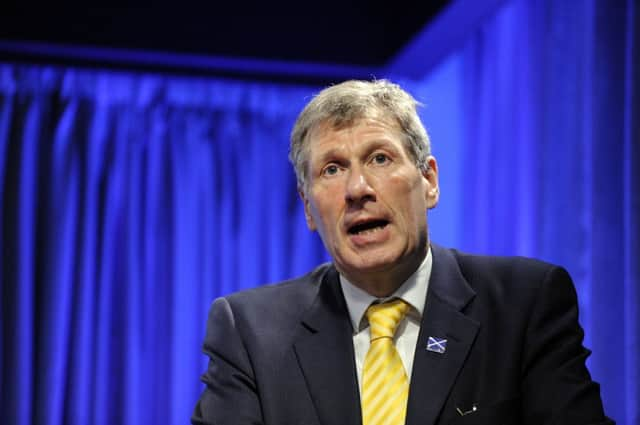Leaders: A federal solution to human rights?


The cause is David Cameron’s declaration that, should the Conservatives win next May’s general election, a Tory government will replace the Human Rights Act with a British Bill of Rights. Then the UK government would no longer be bound to comply with rulings of the European Court of Human Rights, which would become merely advisory.
The Scottish Government, however, has said it will not be bound by such a “diktat” as, says justice secretary Kenny Mac-Askill, the Human Rights Act is enshrined in the legislation that created the Scottish Parliament. To be fair, this is not simply a Nationalist complaint, for the Liberal Democrats’ Scottish Secretary, Alistair Carmichael, has also voiced opposition to what he says is only a Tory proposal and not UK government policy.
Advertisement
Hide AdAdvertisement
Hide AdBut if this does become a real issue after next May, it will inevitably become a polarised Scotland v Westminster confrontation. This would be a great pity, as a debate about the merits and demerits of the European Court would become highly charged.
There are other dimensions to this issue, notably that the European Court has tended to act as though it was Europe’s supreme court, ruling on matters that are far removed from real human rights issues and which are purely national or even local issues that ought to have no pan-European significance. There is also the question of whether it is preferable to have Scottish human rights cases judged in Strasbourg or in London, where there are rather more Scottish judges on the UK Supreme Court and where Mr Cameron thinks such cases should be adjudicated.
But if the opinion of Scotland’s elected representatives at Holyrood is to keep the Human Rights Act and its final court in Strasbourg, would Mr Cameron really be prepared to override that opinion?
Such a move seems so wholly counter to the spirit of recognition of Scotland’s distinctive polity, as expressed by Mr Cameron during the referendum, that it would seem quite improbable. If so, then there will be the slightly odd situation of the European Court having jurisdiction in Scotland but not in the rest of the UK.
It will be curious but, as Mr Carmichael said, not unworkable. It will also demonstrate that Britain is heading for a peculiarly distinctive and asymmetric federalism, with Scotland’s settlement driven as much by political demands in the rest of the UK as by Scottish wishes or needs.
The referendum and its outcome is creating a watershed of change in the British political system that few saw coming, the outcome of which even fewer can foretell.
Time for Clarkson to hit the road
Jeremy Clarkson’s many fans adore the way he extends his adulation of politically incorrect, gas-guzzling, engine-roaring, speed-limit-busting cars to being politically incorrect about almost everything. But there is a line between pointing out for comic effect the occasional absurdities of overly pedantic rule-enforcing and being an offensive boor. Mr Clarkson has crossed that line far too often.
He and his TV crew have been hounded out of Argentina, where they were making a programme in homage to the Patagonian highway. Actually, it seems to have been more of a nasty sneer at Argentina. Veterans of the 1982 Falklands War were incensed by the number plates on the vehicles, which they interpreted as rubbing their noses in defeat.
Advertisement
Hide AdAdvertisement
Hide AdCompounding Mr Clarkson’s oafishly contemptuous behaviour, his producers have bleated that the number plates were some unfortunate coincidence. Absolutely no-one could possibly believe that about H982 FKL. The chances of that being a random error are even less than winning the National Lottery.
Mr Clarkson is now no longer the loudmouth who can be tolerated as some sort of noisy but harmless idiot. At a time of increased political tension over the Falklands, this contempt for Argentine opinion can only make the future of the islanders for whom British servicemen and women died even more insecure.
Why the BBC tolerates him is incomprehensible. Perhaps the corporation is too entranced by the millions earned from selling his programme overseas to recognise the damage being done by his long record of racial slurs and insensitivities. It is time for the BBC to cut this redneck loose.